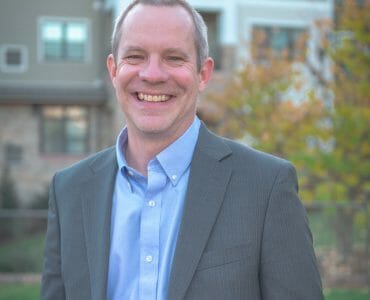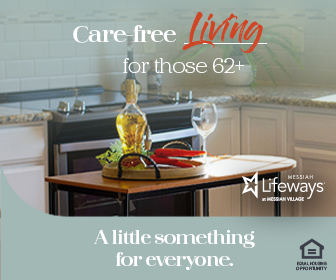Our children are our world, and we strive to love, nurture and provide for them throughout their lives. Eventually as they leave the nest, our wish for them is to grow up into caring, intelligent, resilient, successful adults. Furthermore, despite their own successes and achievements or their lack of, we will also want to leave them a legacy. Legacy comes in many forms, but in this case I am talking about a financial legacy. Big or small we want to leave something behind for them to invest, enjoy or simply supplement their needs. I believe it’s part of being a good parent, a way for us continue to give and support them even after we are gone.
With that said, as a parent ages and retires, the idea of a leaving a legacy starts to evolve a bit. Life gets in the way, like the cost of living, health problems, and unforeseen circumstances. However, if we are fortunate enough, we can make it through to the other side. Therefore, if we have been smart with our investments, retirement, and managing our money, hopefully there will be a sizable nest egg for us to live on and enjoy after retirement and subsequently pass on to our kids – right?
Here’s where all this build-up is leading to. I’m not a financial expert, so I’m not necessarily focusing on the size of that nest egg or how you amass it, but rather how prudent and accountable we will be with that money. Upon retirement – yes we’d like to travel, buy that RV, put that addition on the house, or as mentioned earlier leave an inheritance to family upon our demise. However, aside from having money to live on, pay bills, and the aforementioned “fun stuff,” there is a very vital piece missing from this spending plan. That is – we need to think about covering the costs of chronic health issues, subsequent medical care, and in many cases the need for long-term care, like nursing care or home care.
Costs and Statistics of Needing Care
Unfortunately, there are many misconceptions about the costs, payment, and need for long-term care. According to the 2015 Genworth Financial Cost of Care Survey, the national average cost of nursing care is $91,250/year and assisted living or personal care comes in at $43,200/year. Likewise, for those who have care come into their own home, at $22/hour nationally, you could end up paying $45,760/year for 40 hours/week of non-medical home care. Most of these costs will be paid out-of-pocket or indirectly out-of-pocket through privately purchased long-term care insurance. Many people mistakenly assume Medicare and Medigap insurances cover these needs long-term; however, we know they cover 100 days or less for nursing and do not cover assisted living or non-medical home care at all. Lastly, we are living longer than ever after retirement, thus requiring more money to live on and potentially to be used for extended care. Statistically, it is going to happen to the best of us. Estimates show that 70% of people turning age 65 can expect to use some form of long-term care during their lives.
Rethinking Retirement Allocation and Regulatory Issues
So what does this all mean? First, that big shiny nest egg may not be as big as you might’ve thought. Also, we need to change the conversation and our mindset on retirement funds as we get older. Many people are aware of this dilemma, and they are taking the proper steps to ensure that need, disposable income and legacy are balanced.
Once Medicare exhausts and private funds are depleted, nursing care is then covered by Medicaid (a.k.a. Medical Assistance) for those who financially qualify. For those who are trying to manipulate or work around the system, there are some regulatory checks and balances that the Centers for Medicare & Medicaid Services (CMS) have put in place. Most notably is the 5-year look back period required when someone applies for Medicaid, which was part of the Deficit Reduction Act of 2005 (DRA). This can track back 60 months of allocations to assure no large gifts were transferred or assets or properties were sold below market value, which if uncovered, could result in a period of Medicaid ineligibility for a period equal to the amount those assets could have covered in nursing care. Therefore, this could render someone who is unable to pay privately and ineligible for Medicaid, no way to pay for their care. This is not a good place to be in. However, typically in this situation the nursing home would have to “eat” the cost, because despite having the right to ask them to leave, most facilities would not. Other implications include the nursing home taking legal action to recoup those transferred assets or invocation the Filial Responsibility Law, though rarely used, gives the power to go after family members’ own assets to pay for overdue resident balances.
Allocation Ignorance and Sheltering
In many instances older adults just don’t understand the implications and impact of “illegitimate gifting or transfer.” Recently, an older gentleman told me that he sold his home to his daughter for $1 within the last year. It was clear to see his health was declining and not unfathomable that he might need nursing care in the near future. He is a prime example where Medicaid ineligibility and the 5-year look back may provide a harsh reality for him and his daughter. I explained possible outcomes and strongly urged him to talk with an eldercare attorney to get things squared away, although, there are some estate-planning techniques out there though legal are a bit shrewd. There’s a whole industry predicated on helping adult children “shelter” a parent’s assets to keep them from having to pay privately for a nursing home.
But let’s assume someone lawfully transfers assets outside the 5-year look back period or moves money into a living trust; there are two other problems that arise. One, we put the burden on other taxpayers and the already stressed Medicaid system that will pay fully for mom’s care, while the recipient revels in the “gift” free of any financial responsibility. Secondly, if an individual is deemed eligible day-one for medical assistance, it can really limit their choice of nursing homes. Many nursing homes cap their amount of Medicaid patients, making them difficult to get in to. So it simply limits the number of nursing homes for you to choose from, typically leaving homes that are often “less desirable” as their only options.
Beyond Medicaid
Along with state-funded medical assistance for nursing care, many facilities such as Messiah Village offer benevolent or charitable care in personal care and even in independent living. Quite often in non-profit communities, it’s a part of our mission to care for residents even if they have depleted all their assets. Our benevolent care is funded by the generosity of past and present residents, families, and staff, plus many other donor sources. Applying for benevolent care follows a similar process to the Medicaid application. So essentially, we need full disclosure of usable assets to prove a resident’s financial hardship. Over the years it has been a pretty elementary process. But as healthcare costs rise and consumers become savvier, the practice of sheltering, shielding or protecting assets is becoming more prevalent. Again while this practice is legal, it begins to put a strain on systems like Medicaid and our benevolent care fund. It forces the government and us to dig deeper for financial disclosure and could limit the amount of free care we can provide. Last year alone, Messiah Village provided approximately $2.3 million in charitable care. This includes the contractual loss we absorb from the low Medicaid per diem reimbursement as well as the direct benevolent care we provide. And while most have been good stewards with their money, spent down, and will deservedly benefit from our charitable care, there are others that will receive it too, despite having manipulated the system.
Real Need Versus Manufactured Need
Medicaid and charitable care programs were inspired to care for the truly needy. Otherwise, I believe those with the financial means have an obligation to pay for their care or protect wealth with long-term care insurance, and not by sheltering it or “fooling” the system to get early eligibility. As I stated in the very beginning, I love my kids and will care and provide for them for as long as I can, but I expect them to understand and appreciate that if I need to pay for care, it may potentially deplete their inheritance.






